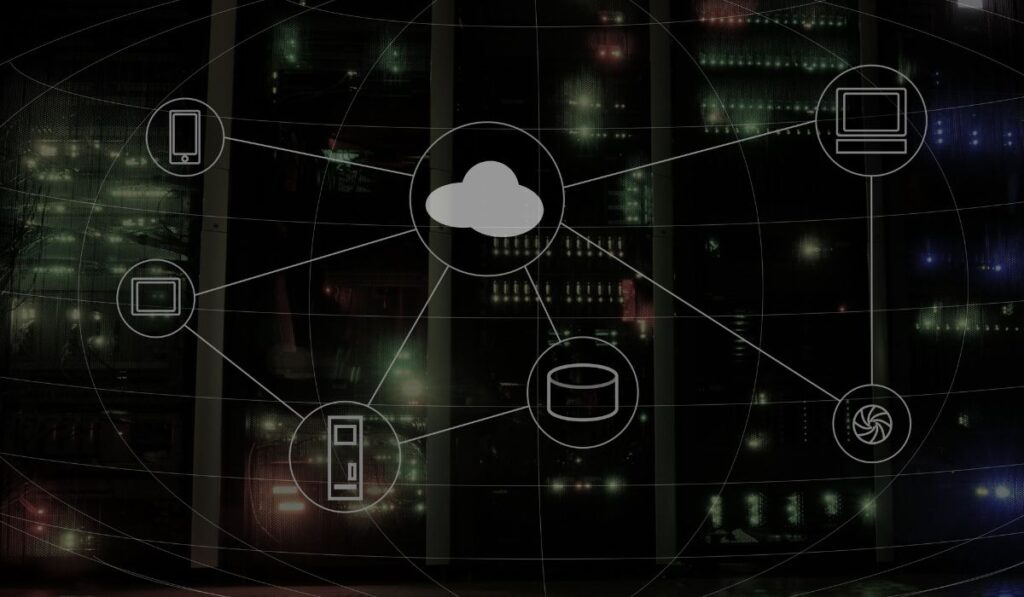The Internet of ThingsIoT) is no longer a vision of the future - it is already having a significant impact on the way companies operate. From smart factories that make production processes more efficient to wearable devices that capture real-time health data, IoT has revolutionized efficiency, productivity and decision-making across a wide range of industries. The ability to continuously collect and share data enables companies to run smarter processes, reduce costs and optimize service quality.
The use of IoT is particularly dynamic in areas such as healthcare, manufacturing, retail and logistics. Companies that rely on IoT gain a clear competitive advantage by optimizing their processes, increasing security and improving the customer experience. In this article, we look at the key benefits of IoT, real-world use cases and how companies can successfully overcome the challenges around data security.
The most important advantages of IoT for companies
1. cost savings
One of the most significant added values of IoT is the reduction of operational costs. Companies are constantly looking for ways to reduce their expenses - IoT offers numerous starting points for this.
- Preventive maintenance: IoT continuously monitor machines and detect potential faults at an early stage. This makes it possible to plan maintenance work in advance, avoid expensive emergency repairs and minimize downtimes. In automotive production, IoT maintenance has reduced downtimes by up to 70% and maintenance costs by 25%.(Source)
- Energy efficiency: Intelligent energy management systems IoT enable precise control of energy consumption. Sensors record consumption data in real time and automatically regulate lighting, heating and air conditioning. Office buildings that use such systems have been able to reduce their energy costs by up to 30 %.(Source)
- Automation: IoT automation reduces the need for manual labor while reducing error rates. Production lines are increasingly being optimized by networked robots, which speeds up processes and increases productivity.
2. real-time insights
IoT generate a wealth of data that can be converted into valuable insights.
- Data-based decision-making: Thanks to IoT , companies have access to real-time data that makes it easier to make informed decisions. In retail, for example, smart sensors enable a better understanding of customer behavior - from product popularity to delivery bottlenecks.
- Analysis of customer behaviour: In stationary retail, IoT record the movement patterns of customers in order to optimize product placement. Retailers use this data to implement more targeted advertising campaigns and improve the shopping experience.
- Performance monitoring: In logistics, GPS-based IoT enable seamless tracking of deliveries. Companies can react to delays in real time, provide customers with better information and optimize delivery times.

3. preventive maintenance
IoT not only enables the monitoring of machines, but also the early detection of problems - even before they arise.
- Longer machine service life: By continuously evaluating machine data, unusual patterns can be identified that indicate impending defects. Companies can intervene at an early stage and prevent major damage.
- Reduction of downtimes: Unplanned production stops cause high costs. IoT maintenance enables precise planning of repairs and prevents expensive downtime. Airlines, for example, use sensors to monitor engines in order to initiate maintenance measures in good time.
4. automation and increased efficiency
IoT improves the efficiency of companies through automation:
- Process optimization: In industrial applications, IoT provide real-time monitoring of machine parameters and automatically adjust them to ensure maximum efficiency.
- Intelligent warehouse management: Inventory levels are monitored in real time through the use of IoT . Sensors detect when stocks are running low and automatically send repeat orders to suppliers.
- Remote monitoring: Companies with multiple locations use IoT to monitor and control machines, buildings and systems remotely - which significantly reduces personnel and maintenance costs.
Real applications of IoT in various industries
IoT has fundamentally changed the way various industries work:
Manufacturing
Smart factories rely on IoT robotics and networked machines to optimize production processes and identify bottlenecks at an early stage. The supply chain also benefits from real-time transparency and automated tracking systems.
Healthcare
IoT wearables enable continuous monitoring of patient data and send automatic notifications to medical staff in the event of critical values. In hospitals, networked systems ensure shorter waiting times and more efficient utilization of equipment.
Retail & Logistics
IoT improves inventory management through precise tracking and automatic reordering. In logistics, GPS-based IoT enable optimized fleet management and reduce operating costs through better planning.

IoT and data security: challenges and solutions
Despite the numerous advantages, IoT also poses security challenges:
- Cyber threats: Every networked device represents a potential attack surface. Companies must secure their systems accordingly.
- Strong security protocols: Risks can be significantly reduced through the use of encryption, authentication procedures and regular updates.
- Artificial intelligence in cyber security: AI-based solutions help to detect threats at an early stage and defend against attacks automatically - often before damage occurs.
The future of IoT: trends and innovations
The development of the IoT is progressing rapidly:
- 5G connectivity: New mobile communications standards enable significantly faster and more stable connections - ideal for real-time data exchange.
- Edge computing: Decentralized data processing directly on the device minimizes latency times and increases response speeds.
- AI integration: The combination of IoT and artificial intelligence promises even more intelligent applications and more efficient use of the collected data.
Conclusion
The Internet of Things is a real game changer for companies - with far-reaching benefits in terms of efficiency, security and cost structure. The integration of new technologies such as 5G and AI will further accelerate this development. Companies that invest in IoT at an early stage create sustainable competitive advantages and are ideally equipped for the digital future.
For more information, we recommend this comprehensive study on the impact of IoT on business processes. If you have any questions, we will advise you free of charge and without obligation.



